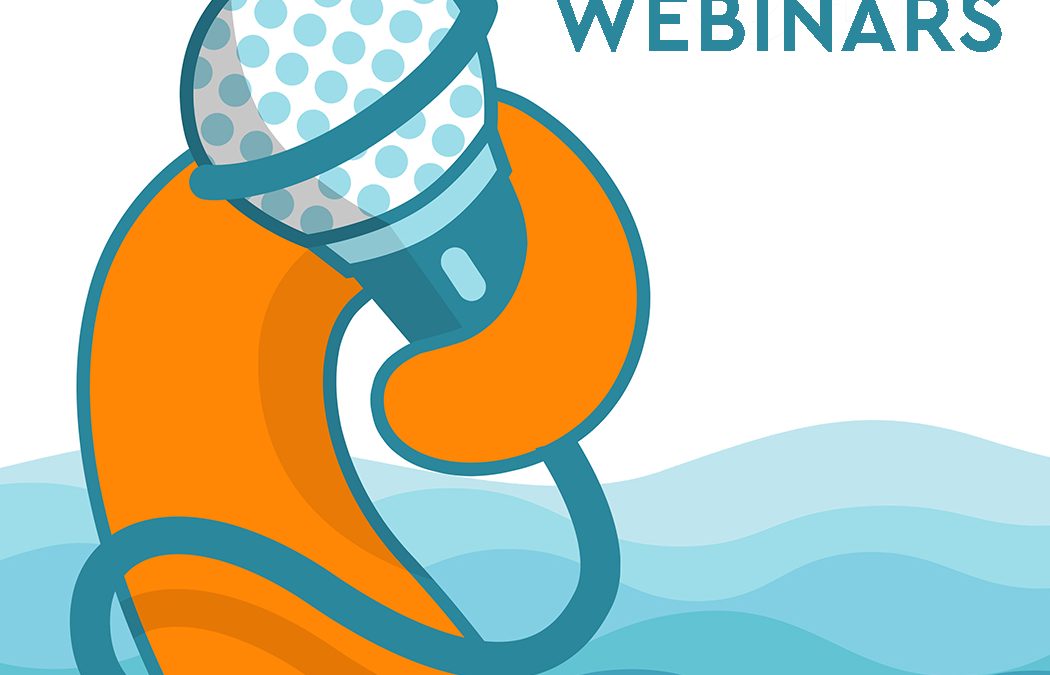
by Sarah Carr, Ph.D. | Sep 16, 2022 | Past Webinars, Webinars
This webinar originally aired on Tuesday, October 4, 2022. Presented by: Chris Clapp of The Ocean Sewage Alliance. Description: Roughly 80% or more of the world’s sewage enters the oceans completely untreated or poorly treated, stressing many ecosystems to the point of collapse. This challenge goes largely unnoticed until a crisis happens – a fishery is lost, beaches get closed, or, worse, people get seriously ill. The Ocean Sewage Alliance was formed to break the silence about ocean sewage pollution and bring a sense of urgency to public discourse on the issue. We do so by simultaneously raising awareness about the problem and highlighting the many opportunities that arise from addressing sewage pollution – opportunities in the form of resource recovery, job creation, and risk avoidance.

by Sarah Carr, Ph.D. | Jul 13, 2022 | Past Webinars, Webinars
This webinar originally aired on Wednesday, July 13, 2022. Presented by: Sari Tolvanen of Ocean Eye. Description: Global studies have shown that stakeholder buy-in is the number one success factor in marine conservation, but too often coastal communities lack incentives to support conservation initiatives. Ocean Eye is a data collection and financial transfer platform that collects wildlife sighting data and transfers ecosystem service payments. The animal sighting reports are directly linked to small payments from tourists that go to coastal communities to incentivize the protection of endangered and vulnerable species. By connecting profit to purpose for the tourism operators and communities, it will shift the focus from the current unsustainable behavior of fisheries and coastal communities towards a sustainable, regenerative, and profitable new focus industry that will provide positive livelihood for the future.

by Sarah Carr, Ph.D. | Jun 24, 2022 | Past Webinars, Webinars
This webinar originally aired on Wednesday, July 6, 2022. Presented by: Vincenzo Corelli of l’Institut national de la recherche scientifique. Description: The highly dynamic shifts in species distributions and transformations of marine ecosystems due to climate change present significant management challenges to marine protected areas (MPAs). While climate change projections can be incorporated into the design process for new MPAs and MPA networks, adaptation is less clear for established MPAs, which were often not designed with climate change impacts in mind. This webinar will explore the results of an analysis that surveyed the integration of climate change measures in existing MPA management plans. The presenter will share what actions are already being taken by MPA managers to anticipate, adapt to, and mitigate the consequences of climate change and ensure the continued effectiveness of MPAs in a changing ocean. They will also discuss how their results create a community-sourced database of actions which other MPAs can draw upon.

by Sarah Carr, Ph.D. | May 19, 2022 | Past Webinars
This webinar originally aired on Thursday, June 23, 2022. Presented by: Imen Meliane, Marine OECM Lead of the IUCN-World Commission on Protected Areas (WCPA); Tundi Agardy, Director of Sound Seas; and Jannica Haldin, Deputy Executive Secretary of Baltic Marine Environment Protection Commission/ Helsinki Commission (HELCOM). Description: “Other effective area-based conservation measures” (OECMs) is a relatively new term to recognize and support existing area-based conservation efforts that contribute to biodiversity conservation outcomes but are not formally recognized and reported as protected areas. There is increasing recognition that OECMs are necessary for achieving Aichi Target 11 and post-2020 area-based conservation targets. In the marine environment, government agencies, communities, and other organizations have started assessing their potential OECMs and reporting them. Over 200 marine OECMs are now formally recognized. This webinar will introduce the concept of OECMs and outline their definition and criteria, with a focus on marine OECMs. It will also provide a practical example of how marine OECMS are being advanced alongside MPAs to further marine biodiversity protection in the Baltic Sea.

by Sarah Carr, Ph.D. | May 18, 2022 | Past Webinars
This webinar originally aired on Tuesday, June 21, 2022. Presented by: Felipe Paredes, Marine Vice Chair of the IUCN World Commission on Protected Areas (WCPA) and National Coordinator for MPAs, Ministry of Environment, Chile; Helen Klimmek, Programme Officer, UN Environment Programme World Conservation Monitoring Centre (UNEP-WCMC); and Sue Wells, Chair of the IUCN-WCPA MPA Management Effectiveness Task Force and Independent Consultant. Description: The global target of protecting 30% of the ocean by 2030 involves not only designation of more areas but also equitable and effective management of designated sites. This webinar will cover recent activity related to assessing protected area management effectiveness (PAME) of MPAs, including: 1) IUCN WCPA’s priorities for work on effectiveness and implementation of MPAs and OECMs so that they achieve conservation outcomes; 2) work to establish indicators for measuring the effectiveness of protected areas and OECMs at the global level; and 3) a brief overview of PAME assessment tools in use and in development for MPAs. Presentations will be followed by a discussion on how the MPA community can come together, share experiences, and collaboratively accelerate the effective implementation of MPAs.

by Sarah Carr, Ph.D. | May 17, 2022 | Past Webinars, Webinars
This webinar originally aired on Tuesday, May 17, 2022. Presented by: Claudia Quintanilla and Katie Heffner of Rare. Description: Environmental challenges are also behavioral challenges; solving them requires behavioral solutions. Rare and its Center for Behavior & the Environment (BE.Center) applies behavioral science to help tackle some of the world’s most pressing environmental issues. This webinar will explore behavior-centered design, how it can be applied to marine conservation programs, and examples of successful cases from around the world – with challenge areas ranging from marine pollution to small-scale fishery management. Presenters will share actionable resources tools and other practical guides to apply behavioral insights in marine conservation programs.


